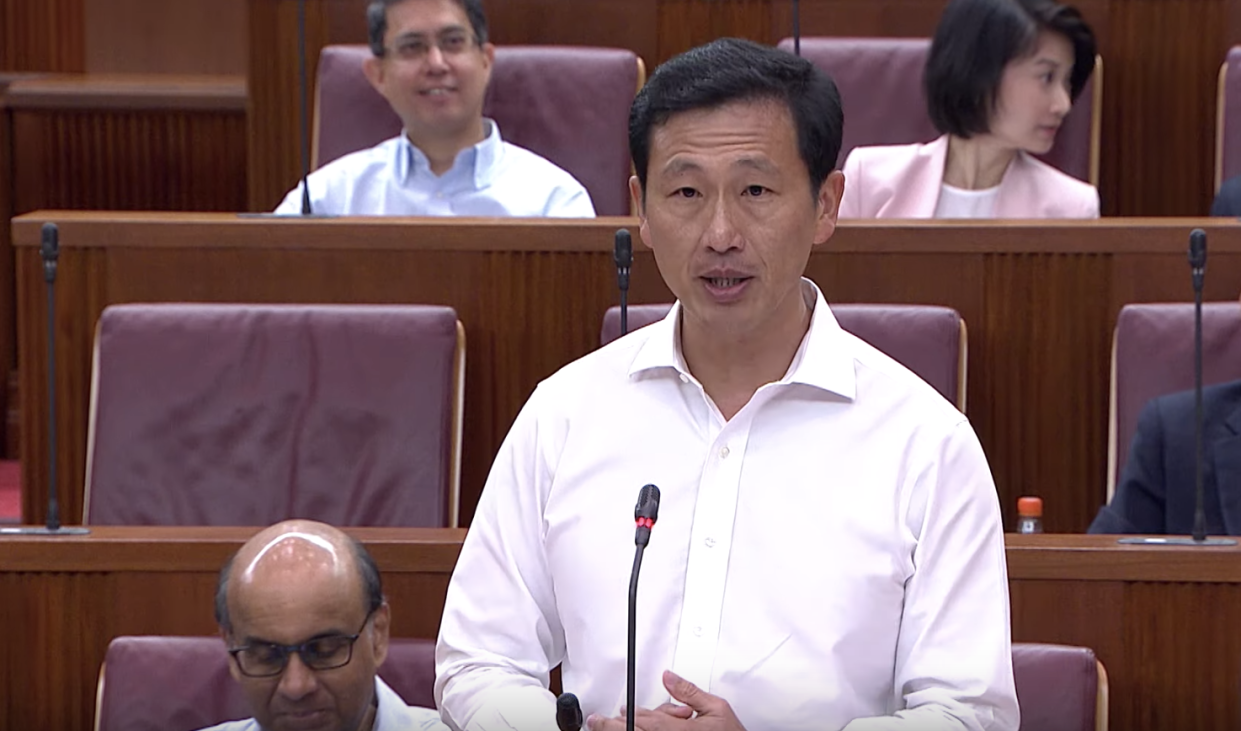Scrapped Yale-NUS course on dissent had partisan 'motives and objectives': Ong Ye Kung

An earlier version of this story incorrectly quoted Education Minister Ong Ye Kung as saying that academics the world over are encouraged to be activists, partly by translating their research findings into “patterns and enterprises”. Ong was actually referring to “patents and enterprises”.
SINGAPORE — The scrapped Yale-NUS College (YNC) programme on modes of dissent was filled with “motives and objectives” other than learning and education, Education Minister Ong Kung told Parliament on Monday (7 October).
“An ordinary Singaporean exercising common sense...would readily conclude (this), taking into consideration all the elements, all the personalities involved,” said Ong, who was responding to questions from Members of Parliament.
“Academic freedom cannot be carte blanche for anyone to misuse an academic institution for political advocacy. (Academic institutions) should not work with speakers and instructors who have been convicted of public order-related offences, or who are working with political advocacy group funded by foreigners or who show openly disloyalty to Singapore.”
But Ong said the project’s withdrawal does not undermine academic standards or open enquiry in any way.
“Political dissent is certainly a legitimate topic of academic inquiry...but thinking critically is quite different from unthinkingly critical, and any course offered by our autonomous universities must be up to the mark,” he added.
Nevertheless, educational institutions must recognise Singapore's cultural and social context, said Ong. “Every country has their rules and laws, red lines unique to themselves. For example, I do not think the US would tolerate an American university course designed by a jihadist to promote violence, or France or Germany would accept a course teaching that Nazism is good.”
Background
“Dialogue and Dissent in Singapore”, initially scheduled to run from 29 September to 5 October, was meant to be a week-long programme to introduce students to “various modes of dissent and resistance in Singapore”. It was to be led by local poet and playwright Alfian Sa’at, and would have featured speakers such as local activist Seelan Palay and New Naratif editor-in-chief Kirsten Han.
All three have been outspoken critics of the government. In 2018, Palay was fined for taking part in a public procession without a permit. He was the only participant in the procession.
In a statement last month explaining the cancellation of the project, Professor Tan Tai Yong, President of the College, said the project “does not critically engage” with the range of perspectives required for a proper academic examination of the political, social and ethical issues that surround dissent.
Prof Tan added that the activities proposed and the selection of some of the speakers for the project infringe YNC’s commitment not to advance partisan political interests in our campus. It might also subject students to the risk of breaking the law.
In a subsequent statement, Yale University’s president Peter Salovey stressed that the decision to cancel the module was “made internally and without government interference”. He added that an internal investigation by the Yale Faculty Advisory Committee had not found evidence suggesting “any violations of academic freedom or open inquiry”.
The Education Minister also told the House on Monday, “The proposed project was inappropriately designed. YNC tried in good faith to work with Mr Alfian Sa’at to make the necessary changes, but ran out of time and then decided to withdraw the project.”
An academic blacklist?
In a supplementary question, Nominated MP Associate Professor Walter Theseira noted that Ong had outlined the criteria for what makes a suitable educator or facilitator. A/P Theseira asked if this meant that autonomous universities (AU) should have a “blacklist of sorts”. “I think this is concerning because it raises the risk that universities will overreact and put people in such a list when they should not be,” the academic said.
Ong replied, “I don’t think it’s practical to have a blacklist. We have to leave room for universities to exercise judgment. Does a person who is an activist therefore (is) not suitable to teach? I think no.”
But while academics the world over are encouraged to be activists, whether in translating their research findings into “patents and enterprises” or engaging policymakers, “our educational institutions should not be misused as a platform for partisan politics”.
Acknowledging that several MPs are also academics, Ong said, ”You cannot conflate between your teaching and your political activism...within a classroom, you have to keep them separate. And so long as this is kept separate, there's actually no problem.”
Nevertheless, the kind of political activism a person engages in matters. The minister noted, “Remember, in many American universities, if someone on the faculty is sexist, or racist, you will not be engaged, no matter how good your research is, how good your teaching is.”
“In Hollywood, we see the same thing. If you are convicted of a sexual offence, even if you are Oscar, Academy Award winner, the studios won’t engage you. And therefore it's not just the content of the course, but also what the instructor stands for.”



